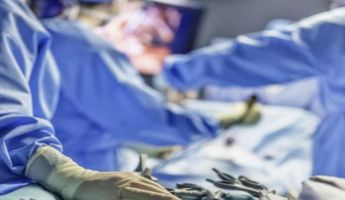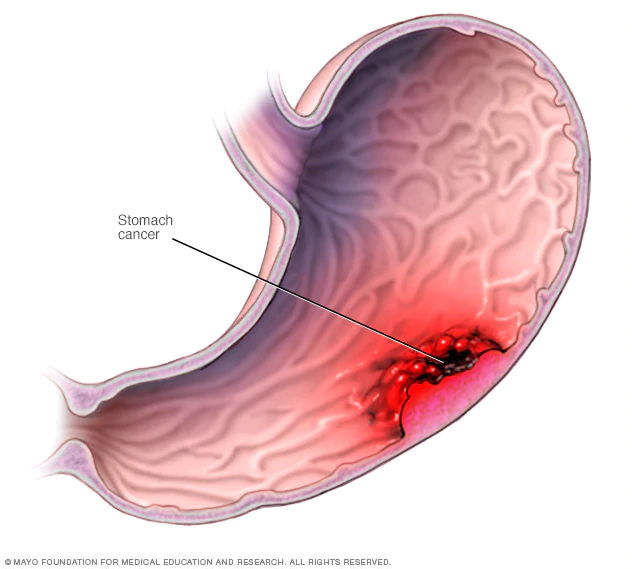Stomach Cancer Treatment in Bahamas
Search and Compare the Best Clinics and Doctors at the Lowest Prices for Stomach Cancer Treatment in Bahamas

Find the best clinics for Stomach Cancer Treatment in Bahamas
No clinics available
Ukraine offers the best prices Worldwide
Price: $ 2,487

- Home
- Bahamas
WHY US?
At Medijump, we're making medical easy. You can search, compare, discuss, and book your medical all in one place. We open the door to the best medical providers worldwide, saving you time and energy along the way, and it's all for FREE, no hidden fees, and no price markups guaranteed. So what are you waiting for?

Free

Best Price

Widest Selection

Risk-Free
What you need to know about Stomach Cancer Treatment in Bahamas

If you have been diagnosed with stomach cancer, your doctor will discuss your treatment options with you. Your treatment options depend on several factors, including your overall health, the stage of your cancer, your age, and your personal preference. Stomach cancer may be treated with surgery, chemotherapy, radiation therapy, targeted therapy, or immunotherapy.
What does a Stomach Cancer Treatment Procedure Involve?
Surgery for stomach cancer is performed to remove all of the stomach cancer and some of the surrounding healthy tissue, your doctor may remove early-stage tumors from the lining of your stomach, remove a portion of your stomach (subtotal gastrectomy), remove your entire stomach (total gastrectomy), and remove lymph nodes to look for cancer. All of these surgeries are performed under general anesthetic. With chemotherapy, a drug is used to kill cancer cells, while with radiation therapy, high-powered energy beams are used to kill cancer. Your doctor may also recommend targeted therapy or immunotherapy, which uses targeted drugs or your own immune system to fight cancer.
How Long Should I Stay in Bahamas for a Stomach Cancer Treatment Procedure?
After surgery, you will need to stay in the hospital for three to eight days and stay in Bahamas for seven to fourteen additional days after you are discharged. If you undergo immunotherapy, chemotherapy, radiation therapy, or targeted therapy, your length of stay depends on how many cycles are needed for your specific case.
What's the Recovery Time for Stomach Cancer Treatment Procedures in Bahamas?
The total recovery time until you can return to your normal routine may take several months, but you should be able to return to work within 4-6 weeks. If you only have therapy, you should be able to return to most of your activities when you do not experience any symptoms that interfere with your ability to perform your duties.
What sort of Aftercare is Required for Stomach Cancer Treatment Procedures in Bahamas?
You need to adjust to a new diet after the surgery so make sure to talk to a dietitian about what to eat. Regular exercise is really important to keep your body healthy, you can start walking as soon as you can. Make sure to schedule follow-up checkups with your doctor to monitor your condition and you may do this with your local doctor at home or your doctor in Bahamas.
What's the Success Rate of Stomach Cancer Treatment Procedures in Bahamas?
Treatment for stomach cancer is known to be effective, but the success rate varies depending on how early the treatment is performed as well as the stage of cancer. The side effects and risks of stomach cancer treatment, which include infection, bleeding, damage to other organs, problems with anesthetic, hair loss, and fatigue.
Are there Alternatives to Stomach Cancer Treatment Procedures in Bahamas?
If you prefer not to undergo treatment or too frail for any type of treatment, you should consult with your doctor and cancer team on the best alternative for you. In some cases, surgery to relieve only the signs and symptoms is recommended.
What Should You Expect Before and After the Procedure
Stomach cancer causes symptoms such as heartburn, nausea, pain, vomiting, and fatigue that may interfere with your daily life. It is also dangerous and it can spread to other organs. After the surgery, you should no longer experience any symptoms and you can return to your normal life.
Whilst the information presented here has been accurately sourced and verified by a medical professional for its accuracy, it is still advised to consult with your doctor before pursuing a medical treatment at one of the listed medical providers
No Time?
Tell us what you're looking for and we'll reachout to the top clinics all at once
Enquire Now

Popular Procedures in Bahamas
Prices Start From $1,314

Prices Start From $512

Recommended Medical Centers in Bahamas for procedures similar to Stomach Cancer Treatment

- Interpreter services
- Translation service
- Religious facilities
- Medical records transfer
- Medical travel insurance
- Health insurance coordination
- TV in the room
- Safe in the room
- Phone in the room
- Private rooms for patients available
Stomach Cancer Treatment in and around Bahamas
The Bahamas is an archipelago and country on the northwestern edge of the West Indies. Having more than 700 beautiful, palm-fringed islands, this country is known for its stunning beaches, coral reefs, crystal clear waters, a myriad of bird species, and historic towns. With everything that it has to offer, it is easy to see why the Bahamas welcomes millions of visitors each year. Besides honeymooners, divers, and beach-goers, the Bahamas is also popular among medical tourists thanks to its exceptionally high-quality services. The country’s booming medical tourism industry is driven by its highly-skilled medical professionals and state-of-the-art equipment, combined with cost-effective medical care and the opportunity to recuperate in beautiful surroundings. Cosmetic and plastic surgeries, total knee replacements, and cardiac surgeries are some of the most popular procedures in the Bahamas.
Popular Parts of the Bahamas
Nassau, the capital of the Bahamas, is one of the chief pleasure resorts in the world. Known as the Bahamas’ crown jewel, it boasts a vibrant culture, breathtaking natural landscape, and rich history. Its signature attraction is the beaches, and the most popular is Cable Beach. With striking white sands and blue waters, this peaceful and beautiful beach is the perfect place to relax and sunbathe. Freeport is also a famous destination in the Bahamas. With its diving sites and world-class restaurants, there are many things to see and do in this city. The main draw of Freeport is its beaches. Some of the most popular are Taino and Fortune Beach.
Weather and Climate in the Bahamas
The Bahamas experiences a tropical climate and the average temperatures will stay the same all year round, between 24°C - 29°C. There are generally two seasons in the country: dry and wet. The dry season, from November to June, is mostly sunny and pleasant. However, it tends to be very crowded during this season, especially from mid-December to mid-April. The wet season spans from July to November. This season sees an increase in rainfall, but there are still many sunny days. The Bahamas also has a hurricane season, which lasts from June to November.
Getting around in the Bahamas
The largest international gateway to the Bahamas is Lynden Pindling International Airport, which is located near the capital city of Nassau, in western New Providence Island. It serves flights to numerous major cities in the Americas and Europe, including New York, Atlanta, and London. The easiest and quickest way to get around is by plane, especially to travel from one island to another. In Nassau and Freeport, the main transport option is the jitneys (private minibusses). In Out Islands, no public transport is available. The best way to get around inside the islands is by taxis or rental cars. However, taxis are often quicker and easier than driving on your own. Ferries and water taxis are all available.
Tourist Visas in the Bahamas
Citizens of 120 countries, including all EU countries, Australia, Canada, China, the US, and the UK, can visit and stay in the Bahamas for up to 3 months without a visa unless stated otherwise. Nationals not listed in the visa-exempt agreement need to obtain a visa to be able to visit the Bahamas.
Additional Information
- Local Currency: The Bahamian dollar (BSD) is the official currency, which is equivalent in value to the US dollar. Bahamian dollar and US dollars are accepted interchangeably in the country.
- Money & Payments: ATMs are widely available on the major islands and can usually be found in airport terminals and at banks. Credit cards are widely accepted. Tipping is expected, usually around 15% for taxi drivers and waiters, and $1-$3 for bag porters and hotel maids.
- Local Language: English is the official language in the Bahamas.
- Local Culture and Religion: Bahamians are deeply religious and the biggest religion is Christianity. However, the constitution guarantees freedom of expression, and other religions are freely practiced.
- Public holidays: Some of the most important holidays in the Bahamas are Whit Monday, National Heroes Day, Randol Fawkes Labour Day, Emancipation Day, Independence Day, Christmas Day, Boxing Day, New Year’s Day, and Majority Rule Day.
Popular Searches
- Plastic Surgery in Thailand
- Dental Implants in Thailand
- Hair Transplant in Thailand
- Breast Augmentation Thailand
- Gastric Sleeve in Thailand
- Gender Reassignment Surgery in Thailand
- Laser Hair Removal in Bangkok
- Botox in Bangkok
- Dermatology in Bangkok
- Breast Augmentation in Bangkok
- Coolsculpting in Bangkok
- Veneers in Turkey
- Hair Transplant in Turkey
- Rhinoplasty in Turkey
- Stem Cell Therapy in Mexico
- Rhinoplasty in Mexico
- Liposuction in Mexico
- Coolsculpting in Tijuana
- Rhinoplasty in Korea
- Scar Removal in Korea
- Gastric Sleeve in Turkey
- Bone Marrow Transplant in India
- Invisalign in Malaysia
- Plastic Surgery in the Dominican Republic
- Tummy Tuck in the Dominican Republic
- Plastic and Cosmetic Surgery in Poland
- Rhinoplasty in Poland
- Hair Implant in Poland
- Dental Implants in Poland
- IVF in Turkey